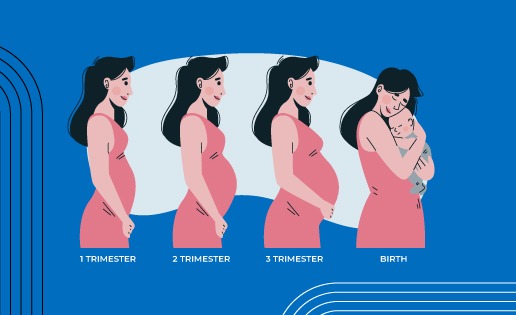Modern and advanced Surrogacy Treatment
Surrogacy is a method of assisted reproduction where intended parents work with a gestational surrogate who will carry and care for their baby(ies) until birth.
THE LIFE PLUS HOSPITAL Care is COVID 19 Safe
1. Our Hospital premises are COVID safe
2. Regular sanitization of clinic & hospital premises
3. Immediate medical assistance through Online Consultation
Modern and advanced Surrogacy Treatment
Surrogacy is a method of assisted reproduction where intended parents work with a gestational surrogate who will carry and care for their baby(ies) until birth.
THE LIFE PLUS HOSPITAL Care is COVID 19 Safe
- Our Hospital premises are COVID safe
- Regular sanitization of clinic & hospital premises
- Immediate medical assistance through Online Consultation

What is surrogacy?
Surrogacy is a method of assisted reproduction where intended parents work with a gestational surrogate who will carry and care for their baby(ies) until birth. Intended parents use surrogacy to start or grow their families when they can’t do so on their own.
Intended parents who use surrogacy include:
• Heterosexual couples who have struggled with infertility
• Intended mothers who are unable to carry a child
• Intended parents who have a genetic defect or health condition they don’t want to pass onto the child
• Same-sex intended parents who want to have a genetic link to their baby
Let's Schedule Your Appointment
Treatment

How does surrogacy work?
Gestational surrogacy helps those who are unable to have children become parents. It’s a process that requires medical and legal expertise, as well as a strong support process throughout the journey.
Through IVF, embryos are created in a lab at a fertility clinic. Sometimes the intended parents use their own genetic material. Sometimes, an egg donor is required. At the fertility clinic, 1-2 embryos are implanted into a gestational carrier, who carries the baby(ies) to term.
Gestational carriers have no genetic relationship to the children they deliver.


Our Doctors
Why The Life Plus Hospital?
 The Life Plus Hospital is COVID-19 safe
The Life Plus Hospital is COVID-19 safe
Your safety is taken care of by thermal screening, social distancing, sanitized clinics, and hospital rooms, sterilized surgical equipment, and mandatory PPE kits during surgery.
 Medical Expertise With Technology
Medical Expertise With Technology
Our Doctors spend a lot of time with you to diagnose your condition. You are assisted in all pre-assisted Hospitalisation process. We offer advanced laser and laparoscopic surgical treatment. Our procedures are USFDA approved.
 Assisted Surgery Experience
Assisted Surgery Experience
A dedicated Medical Coordinator assists you throughout the surgery journey from insurance paperwork, to free commute from home to hospital & back and admission-discharge process at the hospital.
 Post Natal Care
Post Natal Care
We offer free follow-up consultations and instructions including dietary tips as well as exercises to every patient to ensure they have a smooth recovery to their daily routines.
The Life Plus Hospital in Numbers
IVF / ICSI
Surrogacy
IUI
Healthy IVF Babies
What is Surrogacy and How does it work?
For many, the path to parenthood is not always how they may have envisioned, especially after experiencing a long road of infertility or in some cases knowing from the start there will be a difficulty. An option often overlooked, is surrogacy. In the process, the person or couple called the intended parent(s) or (IP(s)), contract with a surrogate or gestational carrier to carry the pregnancy. Simply defined, a surrogate is a woman who carries a pregnancy for another person or couple.
Who Uses Surrogates?
If you’re a woman, you may consider a surrogate for several reasons:
- Medical problems with your uterus
- You had a hysterectomy that removed your uterus
- Conditions that make pregnancy impossible or risky for you, such as severe heart disease
You may want to think about surrogacy if you tried but couldn’t get pregnant with a variety of assisted reproduction techniques, such as IVF.
Finding a Surrogate
There are several ways you can find a surrogate mother:
Friends or family. Sometimes you can ask a friend or relative to be a surrogate for you. It’s somewhat controversial. But because of the high cost of surrogacy and the complex legal issues, it raises about parental rights, a tried-and-tested family relationship can be simpler to manage. Often Legal system discourages Close family members as a form of surrogacy, though, if the child would carry the same genes as a child born of incest between close relatives.
A surrogacy agency. Most people use one to arrange a gestational surrogate. There are many agencies now operating in the country. They act as go-betweens.
An agency helps you find a surrogate and make arrangements. It also collects any fees that get passed between you and the surrogate, such as paying for their medical expenses.
How to Choose a Surrogate
Right now there aren’t any regulations about who can be a surrogate mother. But experts agree on a few points about how to select one.
You should choose surrogates who:
- Are at least 21 years old
- Have already given birth to at least one healthy baby so they understand firsthand the medical risks of pregnancy and childbirth and the emotional issues of bonding with a newborn
- Have passed a psychological screening by a mental health professional to uncover any issues with giving up the baby after birth
- Sign a contract about their role and responsibilities in the pregnancy, such as prenatal care and agreeing to give you the baby after birth
Are there different types of surrogacy arrangements?
Yes. There are two types of arrangements: traditional and gestational
Traditional surrogacy is when the surrogate has a genetic tie to the child she carries. She is artificially inseminated with the sperm of the male intended parent. Due to various legal reasons, this family-building option is not as common or recommended as frequently as gestational surrogacy typically would be.
Gestational surrogacy is when the surrogate or gestational carrier, in this case, does not have a genetic tie to the child she is carrying. The intended parent(s) undergo in vitro fertilization (IVF), provide the egg and sperm, and create an embryo to transfer to the gestational carrier. There are also other circumstances where one of the intended parent(s) will contribute their egg or sperm but a sperm donor or egg donor or even a donated embryo is used in the process.
Are there different forms of contractual agreements?
Compensated agreements are contracts where the surrogate or gestational carrier will receive financial compensation over incurred expenses that come along with the process and the gestation. Some of these costs (not all) include fertility costs, medical costs during the pregnancy, legal fees, lost wages, a surrogate fee, and any other incurred costs related to the surrogacy.
Compassionate surrogacy agreements are those where the surrogate, usually a close friend or family member, offers to carry a pregnancy less the surrogate fee. The intended parent(s) will cover all of the incurred expenses that go along with a surrogate agreement but there is no financial compensation provided to the surrogate.
It is also extremely important to know that each state is different in regard to the legality of a surrogacy arrangement. In some Countries, commercial surrogacy is illegal, and/or the contracts that define the parentage of the intended parents are not recognized or enforceable. This is why if you do consider pursuing surrogacy you will need to make sure you live in a surrogacy-friendly country as well as work with a legal attorney who specializes in surrogacy, adoption, or reproductive law.
Get in Touch
Tell us about your problems and we’ll figure out the best treatment option for you.
Life Plus hospital
Women and Child Care Hospital in Indiranagar | LifePlus Hospital
At Life plus hospital, we offer a comprehensive range of women’s health services. The Department is managed by highly experienced lady gynecological doctors who offer specialized attention and compassionate care for women
Let's Schedule Your Appointment
IUI & IVF Success Story
https://youtu.be/3sBjEYtzV2Y
Embryo Freezing Faq's
Egg freezing can be beneficial for a number of reasons for women wishing to preserve their fertility for the future including:
- Women who want or need to delay childbearing in order to pursue an educational, career, or other personal goals.
- Women diagnosed with cancer.
- Women with objections to storing frozen embryos for religious and/or moral reasons.
A woman in her prime reproductive years may feel confident about her family building timeline. Unfortunately, not every woman has a straightforward path to pregnancy, and some may wonder how long to wait before exploring fertility preservation.
Even after egg retrieval, one or more eggs may remain in the pelvis, so pregnancy is possible. Therefore, once you start on fertility medication, we recommend using condoms during intercourse. However, know that intercourse can be uncomfortable while your ovaries are stimulated.
Age is the best predictor of egg health. Ultrasounds and blood tests can predict the approximate egg numbers expected from a cycle of stimulation. However, it is not possible through clinical tests to measure egg quality. Ultimately, a good egg is one that achieves a successful pregnancy.


















